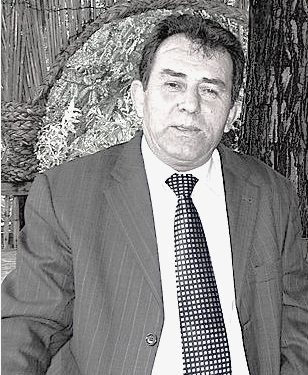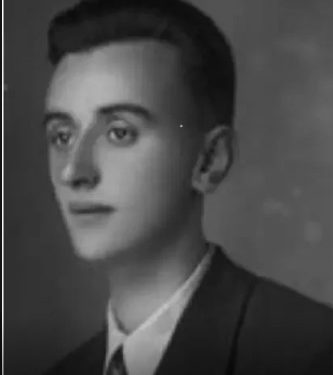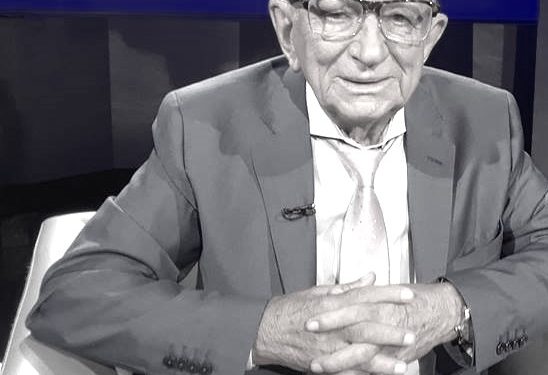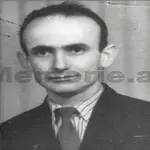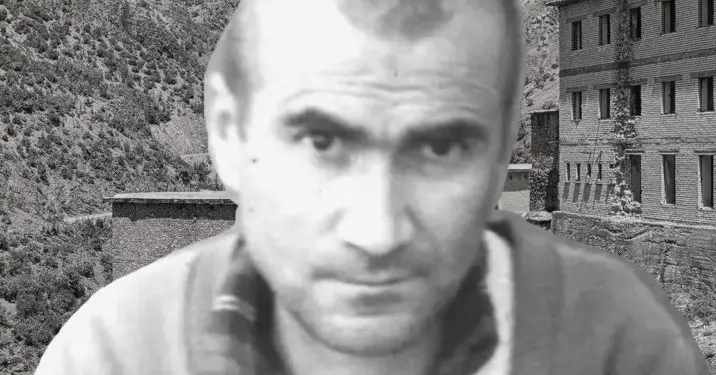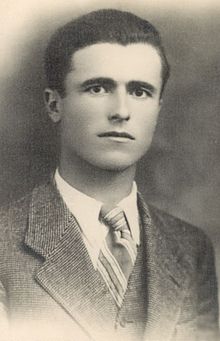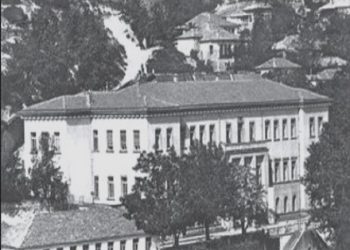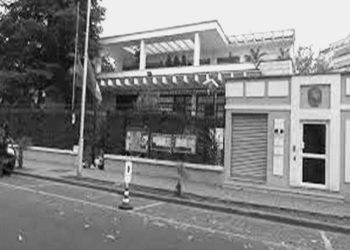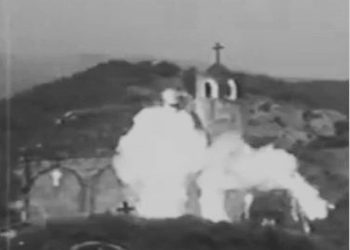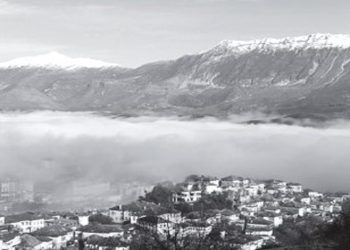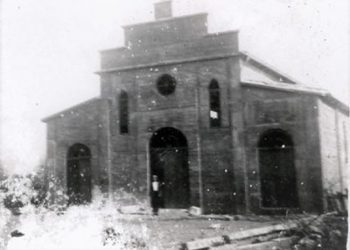By Shkëlqim ABAZI
Part twenty-five
S P A Ç
The Grave of the Living
Tirana, 2018
(My memories and those of others)
Memorie.al /Now in my old age, I feel obliged to tell my truth, just as I lived it. To speak of the modest men, who never boasted of their deeds, and of others whose mouths the regime sealed, burying them in nameless pits. In no case do I presume to usurp the monopoly on truth or claim the laurels for an event where I was accidentally present, even though I desperately tried to help my friends, who tactfully and kindly deterred me: “Brother, open your eyes… don’t get involved… you only have two months and a little more left!” A worry that clung to me like an amulet, from the morning of May 21, 22, and 23, 1974, and even followed me in the months after, until I was released. Nevertheless, everything I saw and heard during those three days; I would not want to take to the grave.
Continued from the previous issue
“If I had known these things then, I would have saved myself excessive suffering, they wouldn’t have crippled me like this. What a fatality! Precisely on November 23, 1968, five years ago, they shoved me into a burial-van (which they affectionately called ‘Lala’s beauty’), with a bunch of wretches and sent me down the abysses of Mirdita. But on November 23, five years later, I was traveling with pocket money, towards Shkodër, the city that granted me love, as much as can be bestowed upon an adopted son, yet reserved a heavy punishment for me, again with a pitiful bunch of ragtag people.
Perhaps they were bringing me back to fulfill Thoma Tutulani’s missed prophecy, to realize his long-held grudge, because I ‘evaded’ him with half a sentence, and now, after five years, he could barely wait to see me behind bars, to demand the maximum sentence and satisfy his ideological lust.
‘When he sent me to the holes of Mirdita, he wished I would remain a corpse under the rocky massifs; unsatisfied with my fate, he hopes to realize his long-standing vow now!’ But the Great Lord had foreseen my fate differently! Truly everything the ‘patriot-prosecutor’ said, in a moment of sincerity, turned out to be correct; the court gave me the sentence he predetermined; I served the prison time to the last day, and now, they were bringing me back there… alive!
So the tenant was waiting to meet the innkeeper! ‘Why shouldn’t he be right now that they coordinated their actions and brought me back here?’ My father’s advice, when he saw me off at the Military Branch, coincided with this conclusion: ‘I hope you go and come back safe and sound, my son! Experience will help you choose your path!’ I returned his hug with a: ‘see you soon!’, but to myself I said: ‘if they let me,’ and I vowed to myself: ‘patience and vigilance, against the known and the unknown!’
Anxious, just like in prison, I walked the road to Shkodër, my head ringing with the cynical laughter of the prosecutor-patriot. The entire dialogue from five years ago replayed… and I swore: ‘I will guard myself like hell from the spies (literally ‘from the thyme’).’
The return to a place where I had numerous acquaintances was not a good omen. The authorities’ goal was compromised from the start. They probably intended to activate old connections, to use them as a kind of alibi, to turn me into the linchpin of a mega-enemy group, to finalize it after a special investigation with a military trial, thus concluding the farce started years ago.
The prison experience helped me reach this conclusion. Thus, I appealed to my will, kept the investigation’s spies in mind, avoided old acquaintances and became a pathological conspirator. I tried to maintain anonymity, as much as could be maintained under communism, viewing every stranger as a suspect, every soldier as a provocateur and a spy.
For appearances, I acted correctly, but in fact I kept my distance, observing everyone, and as soon as I spotted any game, even unintentional, I withdrew into my shell. Perhaps I slightly exaggerated with the hermetic shell, but in an environment contaminated by treachery, I had no other choice.
Meanwhile, months went by. The eavesdroppers grew tired from impatience, eager to harvest the fruit of their contribution (spying) before the figs ripened, and when they saw that the ‘benefits’ were delayed, they granted themselves some ‘leave’ to their families, or out-of-turn releases, etc.
But in the army, every violation was punished. The operative who was supposed to punish them took the side of these unruly people, saved them from punishment, exposed them without the month passing, and rendered them worthless cards. This somewhat alleviated my position, but I was forced to increase my vigilance.
I withdrew and distanced myself indiscriminately, while watching the behind-the-scenes to keep the situation under control. I knew I was a target, so I exchanged only the necessary occasional words and played the naive one. Faced with total silence, the attention of the meddlers was distracted during the first year. Perhaps the ‘masters’ thought: ‘This one has a rabbit in his belly; he doesn’t even dare to dream!’
They grew tired of the ‘harmless naive one,’ as they called me behind my back (and they were right to consider me as such, because I disgusted myself in the role of the simpleton). ‘But it serves me right, after all, this is what I aimed for and achieved!’ I consoled myself. The ‘half-hearted’ consideration perhaps threw me off orbit and secured me a kind of relative liberation, which I utilized in a sophisticated manner, to connect with some relatives of my friends.
I knew the Shkodran character, the generosity and warmth of the most prominent northern region. For a long time, Shkodër has been known as the capital of complexity, art, and culture, with liberal and well-educated intellectuals, lovers of beauty, literature, poetry, music, and especially subtle humor. Only there could one hear cheerful anecdotes that ridiculed the regime and its leaders, even at the “Kafja e Madhe” (Big Cafe) in the middle of the piazza.
Who better than a Shkodran appreciates beauty amidst ugliness, seeks joy amidst weeping, savors life amidst poverty, and observes the stars amidst the clouds?
Soldier in a work unit, in Shkodër
We were building an apartment block in the ‘Partizani’ neighborhood, where the work was directed by Gjovalin Dudushi, who, as I would later learn, was pursuing an engineering degree by correspondence due to a biographical flaw (political stigma). After studying his character for a while, I befriended him, naturally maintaining my old secret fanatically.
Another ‘friend’ was Jaku, the unit’s rambling and talkative driver, who openly boasted about his cooperation with the Sigurimi (Secret Police), but was too coarse to be sophisticated. At the same time, I utilized the ‘confidence’ with Corporal Ndue, whom we called ‘chief’ to please him. The blockhead storekeeper waved his party card inappropriately and speculated on the trust of the basic organization that had guaranteed his duty.
In our unit, which was actually a regular work brigade, with thirty workers dressed as soldiers, several dozen Shkodran reservists were completing their training. Naturally, most came from families with a ‘bad’ biography, which I realized when Commander Gjeta and ‘Chief’ Nuja lined them up and read out their names and surnames.”
“Meanwhile, I maintained my guard and with the same care avoided any public acquaintance or conversation, but when I was alone with someone, I spoke indirectly about the relative I had known in prison, gleaned the information that interested me, and could delve further when I was convinced about who I was dealing with. During the year, I exchanged several dozen books with Gjovalin, and we deepened our friendship, utilizing our daily contacts.
Out of enthusiasm for the discovery, he introduced me to his friends, lovers of literature, art, and culture, some of whom turned out to be sons or nephews of political prisoners, who, in truth, were abundant in Shkodër and its surroundings. Through Leon Keqi, the son of my friend Gjeto Keqi, I met a nephew of Zef Ashta. Again, through Leon, he learned that I had been a political prisoner; naturally, the conversation took place without my presence, but my friend’s son informed me to prepare me for a possible meeting.
A few days later, we found ourselves face-to-face, as ‘by chance.’ Zef’s nephew casually mentioned his uncle and tried to investigate any sign of insecurity in me, but being prepared for such situations, I spoke to him about the uncle when I was convinced he wasn’t provoking me. On a cold early evening, the duty officer notified me that I was being asked for a meeting.
With the collar of my overcoat raised, I approached the unit gate without imagining who was waiting for me, although I was convinced that my relatives could not have made the long journey from Berat without notifying me first. Anyway, I crossed the gate without any guesswork and surveyed both sides of the sidewalk, where a few rare passersby came and went.
No one approached the unit gate, and anyone who stopped at the station was just raising their collar while waiting for the bus to ‘Fermentim’ or to the ‘Bahçallëk’ bridge, without looking toward the walls of the Barracks. Perhaps Shkodër hated the ‘Lazaret,’ the camp with its row of barracks, which reminded them of Communist repression and terror.
I looked all around, no familiar face. I was about to turn back when I saw on the left ledge of the duty cabin a young man with a cap over his eyes and an elderly woman, wrapped in an old-fashioned coat and a woolen shawl. Shrouded in the evening twilight, I couldn’t make out their features; I thought they were travelers stopped at the station, where coming and going never ceased all day.
I turned around to look at the sidewalk, but there was no one. Instinctively, I focused on the bizarre pair, when a female voice, in dialect, reached me: ‘Is this the one?’ – a pause and again: – ‘He is just a child, my son!’ The young man replied – ‘It’s alright, it’s alright!’ and they came face-to-face, exchanging replies. Only two steps separated me from the entrance when Zef’s nephew, my friend, blocked my way. I offered him my hand, and also extended it to the elderly accompanying woman, out of courtesy.
Now in the light of the projector, a worn face appeared, where two gray eyes stood out, with some deep and frequent wrinkles, starting at the corners and arching and deepening into the sunken cheeks, descending under the chin, giving her the semblance of a suffering martyr or a merciful saint. The old woman paused with one hand outstretched and a bag in the other: ‘Take it, my son!’ – she spoke softly.
The sweetness of the features that belonged to every mother or sister increased my trust. I crossed the boundaries of suspicion and accepted the ‘gift,’ as if my own mother had bestowed it upon me, and I would have accepted it just the same even if a bomb were hidden in the bag.
After the immediate greetings, the old woman handed me the bag, placed her hands on my shoulders, and hurried: ‘We’re leaving now; they’re waiting for you at home, good night!’ Without giving me time, she turned her back, followed by her son, and approached the bus that had just stopped at the station. From the sidewalk, I followed a wrinkled hand that waved in the emptiness. The engine rumbled and the clattering junk covered me in bitter smoke.
As the old woman’s figure faded into the darkness, I raised my free hand and waved it in the air. I don’t know if they noticed me. I looked around one last time and crossed the gate. I huddled in the shelter behind the corner where the wind didn’t hit me and opened the bag. A fragrant steam puffed out, tickled my nose and blurred my eyes, while something scorched my fingertips. ‘Oh God, the aroma of a mother!’
My hand encountered some freshly baked layers of byrek (savory pie), while a bottle shone at the bottom of the bag and… there was nothing else, no letter, no note, nothing…! ‘Ah, mothers and sisters are the same everywhere!’ – the thought echoed deep in my brain. I broke off a piece and was deeply moved. ‘Oh, Mother!’
My mouth warmed, as sublime warmth enveloped my soul: ‘Glory to MOTHERS! Protect them and grant joy to MOTHERS, oh God! They are the origin of unconditional love!’ Under a downpour of rain, as it falls in Shkodër, I returned the visit to the elderly sister of my friend.
At the entrance of the alley, her son met me, who accompanied me under the awning of a dilapidated house, in one room of which a tin stove was smoking. Near the corner, the suspicious old woman was waiting with disbelief, which was justified by the difference in appearance between me and her brother, which did not correspond at all.
The ice broke with the first words. After my regards for her brother, she threw herself around my neck and burst into tears. While I continued to speak to her about the love he harbored for them, amidst sobs, she apologized for the poverty, for the material impossibility, ‘to receive me as I deserve,’ then she did not stop asking questions for almost two hours about ‘the beloved brother, whom they were killing in the cell!’ Through her, I re-established contact with Zef; she sent me and I sent him greetings. Then I was released from the army and news came more rarely.
III
Whenever I met a fellow sufferer who was being released from prison, I inquired about the latest news. From them, I received the bitter news of Zef Ashta’s death. I was immensely saddened. I felt as if a relative had left me. He, with his personality and knowledge, powerfully influenced my intellectual and political formation during those three years. But I would learn the full news when Luan Myftiu, my friend and Zef’s, was released from prison.
Here is how Luan described this tragedy to me: ‘Around midnight, Zefi closed his eyes forever!’ – he began his narrative. – ‘The message was passed around the dormitories. For the entire night until dawn, the prisoners took turns keeping vigil. Interestingly, in the morning the police did not remove the deceased’s body, as they usually did. That day, they seemed to be more sensitive, more human, they even looked a little saddened and did not yell as every time! By ‘prison decree,’ we declared a national mourning. Naturally, we relied on our own code, even though the command would not respect it.
In memory of the man who sacrificed everything he had and gave everything he could for the Homeland, for freedom, for prosperity and for the education of the new generation, we also announced it officially; that is, a designer wrote the announcement, notice, and obituary in ink, like never before, on pieces of cardboard, and the young men pasted them on the dormitory doors, on the wall faces, at the entrances to the galleries, and even on the emulation stand.
Until nearly noon, Zef’s friends received condolences, and then a two-file procession of convicts was formed, even including a special policeman, where they solemnly escorted the body of that man, who would leave the brightest name in the political prisons. Certainly, he deserved the respect! Perhaps even more…! But that is all we could do, that is all we did…’ Luan concluded.
Yes, my friend, without a doubt Zefi deserved it greatly! May he rest in eternal peace! Amen! I sighed amidst tears…!
The ‘Special’ Friend of the Prisoners!
Now I will mention a ‘special’ friend, whom I deliberately left for last, because however well-known in prisons, he remained shrouded in anonymity. Convicts and police, without exception, called him MARROK. The prisons knew him as ‘marrok,’ called him ‘marrok,’ treated him as ‘marrok,’ released him as ‘marrok,’ perhaps he died and was buried as ‘marrok.'”
“Surely the co-sufferers who are alive remember ‘Marrok’ as he was, but few know who he was and even fewer learned the truth. Perhaps I, too, would have been released without learning who was hiding behind the tattered clothes, behind the body worn down to ruin, behind the filth that inspired revulsion, behind the character, sometimes silent to the point of dumbness, sometimes talkative to the point of annoyance, behind the sarcastic, cutting, vulgar, and thuggish jargon, but fortunately, I had Tomor Allajbeu as a friend and later Zija Lepenica, the brother of Sadik Premte, who, separately and in different terms, would narrate the event to me, as follows:
‘Enver Hoxha, from a failed student of an incomplete university, to a dubious legation secretary in Brussels, from an hourly teacher at the Korçë Lyceum, to a supposed revolutionary and opponent of the fascist occupation, from a supposedly ‘masked’ cigarette seller in the middle of Tirana, all the way to the leader of the pseudo-communist movement; then from the leader of the Central Committee of the Communist (read terrorist) Party, to the triumph of the force he led, and later, until the end of his life, had personal adversaries (read enemies for power), but along the way, antagonists also emerged within the force he led, and when these were missing, he invented them under the syndrome of paranoia and produced enemies in abundance, just as he fabricated heroes excessively.
In all likelihood, the adversaries can be classified into three groups: real, supposed, and imaginary enemies. He faced the true enemies, but the ‘brave’ Enver was not as valiant as he pretended to be; in fact, no direct confrontation is recalled, only betrayals and ‘fools’ he ambushed and then eliminated through cunning. The supposed enemies comprised a pack of rascals who could threaten his future, for no reason at all. These could be acquaintances from childhood years, high school, witnesses to his university failures or unbridled debauchery, and later, colleagues who knew his shortcomings and moral defects, war and work comrades who were capable and charismatic, but who for one reason or another, risked eclipsing his figure.
Meanwhile, in the group of imaginary enemies, one could classify every political idiot, whom, after squeezing out their last drop, he decided at some point to discard, labeling them an enemy, but for the label to gain value, he ‘convinced’ the wretch to self-declare as a ‘potential opponent’ of the Party and the People’s Power.
In prison and after prison, I met dozens of such people. When you saw them from afar, you were convinced they were capable and had character, but when the opportunity arose, I changed my mind: ‘Pity the people, who were led by such people for half a century!’ The political puppets who had chosen to lead us inspired disgust, but also hope: ‘If the likes of these brainwashed scarecrows are like this, salvation from the communist scab will be a matter of time,’ and indeed I was not wrong, when the moment came the majority of Albanians discarded them like dolls, trampled on Marxist dogmas, and banished the imaginary-socialist well-being. As soon as he seized the state and took power, Enver eliminated his ‘enemy adversaries,’ either individually or in groups.
By irony of fate, the two most formidable ones secured political asylum in France, a country where the Great One had pursued his youthful obsession and could not detach himself from, until he closed his eyes. Their shadow tormented him, spoiled his sleep, humor, joys, and increased his phobia.
The two early acquaintances, the fanatic nationalist and brilliant intellectual, Professor Abas Ermenji, with whom he had shared his teaching years in the school where Enver remained a failed parvenu, while Ermenji eclipsed his ego with intellectual perfection and patriotism. Therefore, the conceited and cynical buffoon hated him precisely because of the virtues he failed to acquire. Memorie.al




